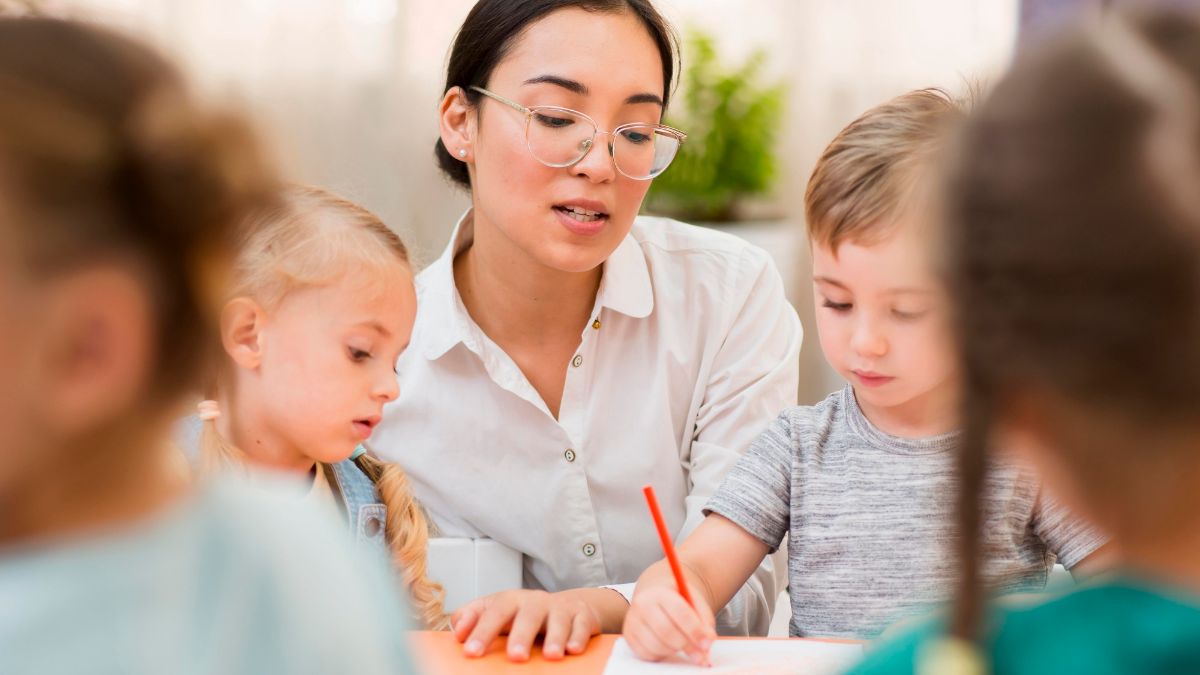
Early education has always been a priority in schooling, recognizing that kids who get into the education system have better outcomes overall. However, in more recent years, organizations like the World Bank have tried to shed light on the urgency of early learning, particularly in the child’s first 5 years.
Shockingly, “nearly 40 percent of all preschool-age children globally are not enrolled in preschool”. This statistic shows that locally and around the world, there is a lack of access to education and knowledge about its critical impact that has not been available to parents. To help improve the awareness of the importance of early learning, governments and the private sector are helping individuals understand the immense benefit of getting kids into school early.
Children deserve the best chance to develop into their full potential and to do this, a holistic approach must be used to recognize the spectrum of capabilities of each child. Furthermore, at ELCACenters.com, you can find out more about how you can best support your child’s learning needs. It is up to each parent and caregiver to take full responsibility for their child’s education, and thus, development. Only in this way can future generations reap the benefits of the investment of quality education.
Why Is Early Learning so Critical?
For a child to enter a learning system early in their lives, it is giving the young individual the best chance of developing important social and cognitive skills. With the help of co-ordinated educational play and the increased focus on specific motor skills crucial for later school years, it is possible to nurture creativity, fine motor skills, spatial awareness, hand-eye coordination, and more!
Young children who are learning early – with peers and teachers – also develop critical reflection skills. They start to understand achievement and failure, how to self-improve, how to manage the uncertainty of performing a new task. These reflective skills are brilliant at building the child’s self-esteem and confidence in their learning ability and performance.
Experts recommend starting young children off with emergent reader books. This is a fun, engaging and exciting way to help them get accustomed to learning. In addition to the child getting to learn something useful, they will get into the habit of using textbooks and sitting down for sustained periods. This will help in improving their attention span and allow them to develop an interest in the different forms of learning.
Social Impact of Early Education
Socially, the value of early education cannot be overstated. Learning to socialize well with other kids has immeasurable benefits for the child, such as helping kids work on their communication skills and learning how to be a good team player. Seeing behaviors in other kids and recognizing them in oneself is also a great way for kids to understand the impact of good and bad behavior. We can encourage young kids to model good behavior, set examples of how bad behavior is hurtful to others, and help young friends learn to resolve their own conflict.
Being exposed to other kids from an early age is fantastic, particularly when teachers understand the value of play and healthy competition. Being able to see others do well in a game, for example, challenges the idea that you are the best. And though the self-esteem of a young child is sensitive and can be easily triggered, these teaching moments can be excellent to show kids not to compare themselves to others but to be inspired and motivated to work hard if they want to achieve similar results.
Socio-emotional Benefits
It has also been found that socializing young kids lead to increased empathy and the ability to relate to others. Seeing young friends who have fallen, hurt themselves, or are sad, those supported in early education can be exposed to the emotions of their peers, help offer sympathy and help, and become aware of social cues showing them that someone may be struggling.
How Does Early Learning Affect Long-term Development?
It is also important to look at the bigger picture of development, peering into the future of a young child who has received a quality education. It is easy to see that early education greatly improves the chances of completing their schooling, after which the learner can become a college student or enter the workforce.
Hereafter, the nurtured individual has a much higher earning potential, allowing them to access resources that would’ve likely been out of their reach if they had not completed schooling. With a higher income during working life, individuals can enjoy a healthier lifestyle, afford nutritious food.
Societal Outcomes
Significantly, investing in early education has been linked to lower levels of crime in society. Quality education provides much more than a solid foundation for a child. It becomes a springboard from which an individual can escape the poverty trap. It is a chance for a family and future generations to make their way out of a cycle of low-income living, being provided new opportunities to make the most out of what life has to offer.
Sometimes it takes a parent or caregiver to understand exactly the immense scope of impact that early education can affect on your child. The cognitive, emotional, social, and occupational outcomes of the supported young child improve tremendously. And they will grow up to become self-sufficient, responsible, and healthy citizens.




